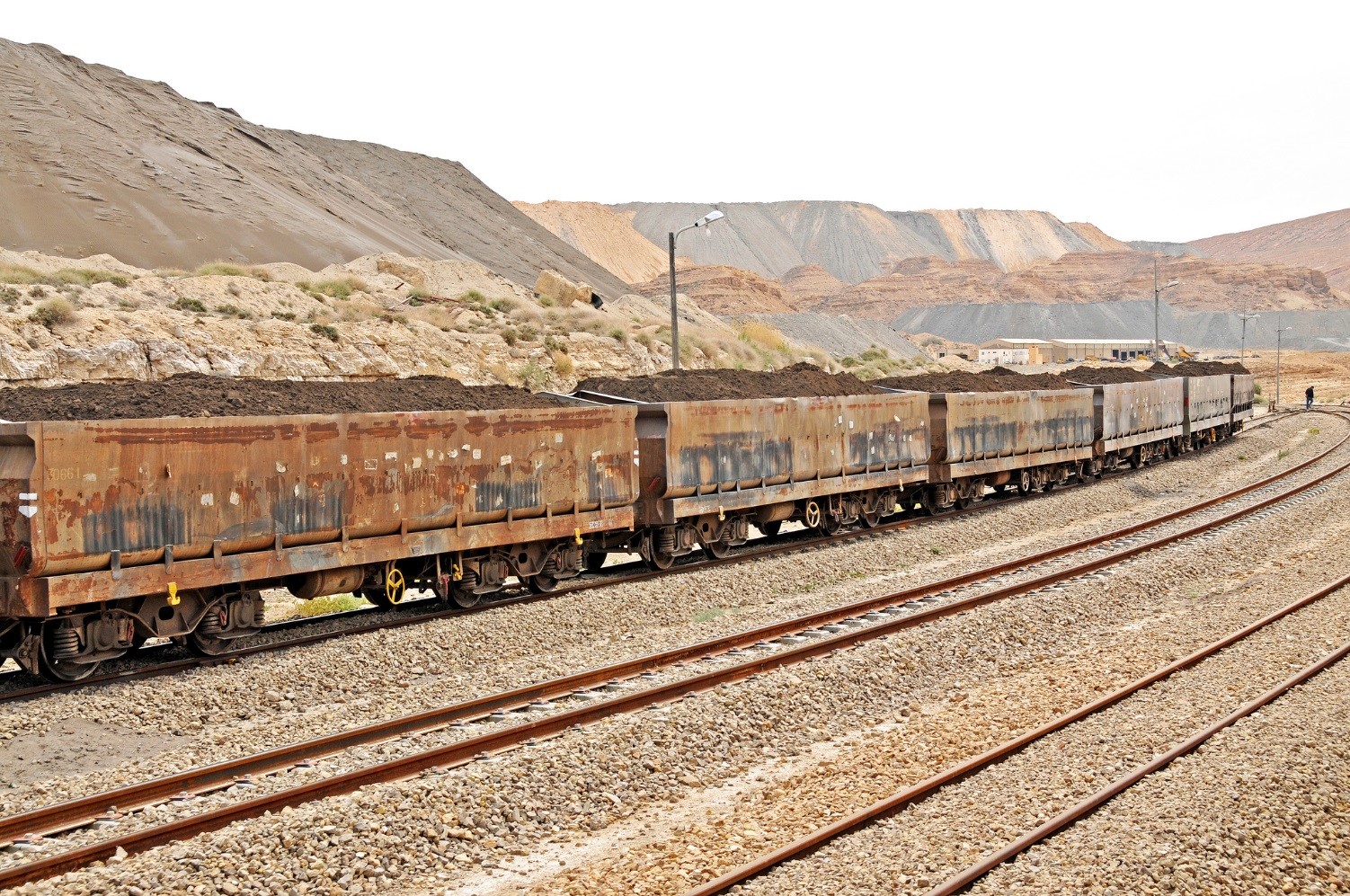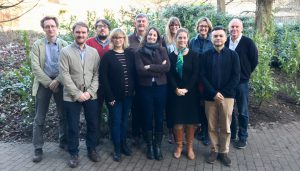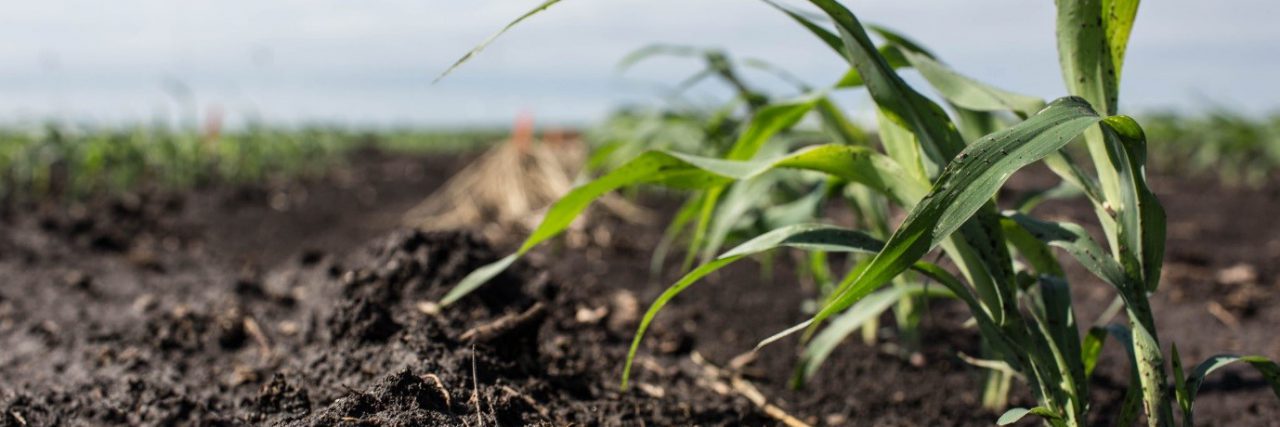There is a growing threat to the UK’s food system, and most of us aren’t even aware of it.

Phosphorus is an element that is essential to all living things; it forms a key component of DNA and is important for energy transfers in cells. We take in about 1 gram of phosphorus a day, and store approximately 750g in our bodies (primarily in the form of calcium-phosphate in our bones and teeth). In nature, phosphorus is concentrated in rock, diluted in water and found in the matter and waste of plants and animals. However, it cannot be forged from other materials in a lab or a factory, and there is no substitute for its role in maintaining life. Farmers around the world spread phosphorus on their fields in the form of synthetic or organic fertilisers such as manure and compost to help their crops grow. This includes British farmers, who are essentially dependent on phosphorus for fertilisers, feeds and foods.
However, the UK has no domestic source of phosphorus. Most of the phosphorus fertiliser used in UK comes from phosphate rock mined in Morocco and Moroccan-controlled Western Sahara. These rocks have taken hundreds of millions of years to form, and are becoming increasingly scarce and if predictions are correct, global phosphorus sources will dwindle by 2050 – just as the global population reaches 9 billion [1]. As an importer of phosphorus, the UK will be at the mercy of supply disruptions, price spikes, or declines in production that could leave our food system in a vulnerable position.
Another critical factor in the phosphorus challenge is the inefficiency of phosphorus use in food production. The average diet today results in the depletion of around 22.5 kilograms of phosphate rock per person each year (or 3.2 kilograms of phosphate), which is 50 times greater than the 1.2 grams per person per day recommended daily intake of phosphorus. When food producers spread too much phosphorus on their land, the excess flows from the farmland into rivers, lakes, and coasts, damaging aquatic ecosystems.

Despite the significant threat that phosphorus shortage poses to our global food system, researchers are only just beginning to address this complex problem, focusing mainly on technical and agronomic solutions like recovering phosphorus from wastewater and increasing phosphorus efficiency in agriculture. However, sustainably supplying enough phosphorus to ensure UK food security in the future without degrading our waterways also requires a deeper understanding of the ‘phosphorescent’ risks. This is the aim of the RePhoKUs project.
The Global Food Security-funded project ‘Refocusing Phosphorus use in the UK Food System’ (RePhoKUs) is the first ever phosphorus vulnerability assessment of the UK’s food system, bringing together experts in catchment science, adaptive capacity and food systems vulnerability. But far from a traditional academic exercise, our approach to engaging experts with the phosphorus challenge has been inspired by role play games like Dungeons and Dragons [2]. This approach mixes practical experiences, science and creativity, helping participants to look beyond catchment dynamics, soil and crop science, and traditional value chain-based stakeholders, to co-produce practical new solutions that might not be visible to any one group, and avoid the problem of top-down solutions that don’t fit on-the-ground realities.
One example of how our unconventional approach to the phosphorus challenge can produce new insights, is the realisation that large consumers of clean energy from biogas could unknowingly be holding ‘latent’ or potential power to drive future change in the phosphorus challenge. This is due to the fact that biogas digestion stimulates the commercial recovery of the phosphorus by-product, which could be used as a renewable fertiliser in UK agriculture.
The GFS-Food Systems Resilience project is still in its early phases, however, we are already engaging a diverse range of actors and groups with an interest in transforming the UK food system to make it more resilient to ‘global’ events such as a phosphorus shortage. This includes farmers, environmental managers, river trusts, water companies, scientists and environmental economists. We feel that a richer understanding of how these actors move and groove within the phosphorus value-chain, natural cycle, or as change-makers, will help create a multi-actor platform for transforming the UK food-system. We intend to use this knowledge to develop a connected national level approach, so the impending phosphorus shortage won’t leave the UK food system on the rocks.
References
- Cordell, D. et.al (2009). ‘The story of phosphorus: Global food security and food for thought’, Global Environmental Change, vol. 19, no. 2, pp 292-305.
- University of Technology Sydney (2018). ‘What Dungeons and Dragons has to do with engaging stakeholders’. Available at: UTS: What Dungeons & Dragons has to do with engaging stakeholders [Accessed: November 2018].
About the author
Dr Christopher Lyon, University of Leeds, is a social scientist interested in the human dimensions of resilience and transformation for sustainability from local to global levels and present-day to deep future time scales. Originally from Canada, he holds a PhD in Geography from the University of Dundee.
About the project

The RePhoKUs project is one of ten projects funded through the Global Food Security’s ‘Resilience of the UK Food System Programme’ with support from BBSRC, ESRC, NERC and Scottish Government. For more about researchers who are working to meet the challenge of providing the world’s growing population with access to safe, affordable and nutritious food, you can read about the project: Resilience of the UK Food System in a Global Context and follow us on Twitter @RePhoKUs.




Phosphate recycling is important but it is a shame to see the discredited theory that we will run out of phosphate in 30 years rolled out again. Please see the comprehensive review of reserves prepared in 2010 by IFDC in collaboration with the US Geological Survey. https://ifdc.org/2010/09/22/ifdc-report-indicates-adequate-phosphorus-resources-available-to-meet-global-food-demands/
Thank you for comment, Barrie. To clarify a few things:
We use the word “dwindle” because we agree that we are not going to run out of phosphorus (unless we start atom-smashing), only that the possibility of a less accessible supply of rock exists. Supply issues can have governance, political, and economic drivers as much as any technological or ease-of mining issues. For example, countries like China have taken steps to secure their domestic supply and unexploited reserves in other countries might also become nationalised and protected. The prohibitive 2008 price spike is another example. The vulnerability of the global agricultural system to any disruption in Morocco or another other potential global supplier cannot be discounted simply because an estimated quantity of rock exists. Moreover, the IFDC report is but one analysis of a fairly opaque question given the difficulty in getting reliable data, and leaves considerable wiggle room.
Hence, our project looks at the broad questions of vulnerability and resilience of the UK given the numerous uncertainties and risks that a reliance on international rock sources brings.
I would encourage you and other readers to look this paper by one one of our Rephokus colleagues, which addresses this IFDC report among other items, in an effort to clarify how we think about phosphorus.
Cordell D, White S. Peak Phosphorus: Clarifying the Key Issues of a Vigorous Debate about Long-Term Phosphorus Security. Sustainability. 2011; 3(10):2027-2049https://www.mdpi.com/2071-1050/3/10/2027
Why does the phosphate have to be used for military purposes when it’s so necessary for human life? I’m reminded of the news today that UK government is licensing exports of it to Turkey and has been shown to have been used in North East Syria to the detriment of people. One unfortunate is in hospital there with the most horrific damage to his body. So if it’s so precious in a good way, why the hell is it being licensed to the military? And I’m sure it’s not just the UK government who’s licensing…I feel ?.